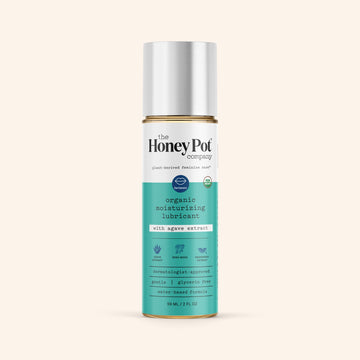As a gynecologist, one of the most common complaints I see in my office is vaginal itching or odor. Using the wrong product, over-cleansing the vulva, or attempting to clean the vagina can actually worsen bothersome vaginal symptoms rather than help. So, what should we do?
The way we care for our vulva and vagina has typically been a taboo or shameful topic in our culture. Even the use of the term “feminine hygiene” has been used to avoid the actual terminology of normal human anatomy. For as long as we could remember, humans with vaginas were expected to handle things like menstrual cycles and vaginal problems in the privacy of their own bathrooms. However, it’s a new dawn, and we should feel more empowered to take ownership of our bodies and health.
Know the Difference Between the Vagina and the Vulva.
First, it is important to understand the difference between the vagina and the vulva. The vagina is the muscular tube that connects your outer genitalia to the cervix and uterus. The vulva is the outer genitals that you can see, including the labia and pubic hair. The vagina is designed to clean itself, and it does this with vaginal discharge. So, what is considered normal discharge? Typically, discharge is clear or a whitish milky color. It may change at different times of the month, depending on where you are in your cycle. Around the time of ovulation, it is thin and sticky, like egg white. After ovulation, it tends to be creamy, similar to lotion. Soon after your menstrual cycle, there is the least amount of discharge. Abnormal discharge is typically increased in amount, yellow or green color, and possibly associated with itching, burning, irritation, or a foul odor.
Unlike the tissue of the vagina, the vulva is more like skin elsewhere on your body. Parts of the vulva, such as the labia majora (outer lips) and pubic mons (fatty pad of tissue above the pubic bone) can produce sweat and hair. These areas can develop something called smegma - a buildup of old cells, dirt, and oil that looks like thick cheesy secretions. Vaginal discharge does not clean the vulva.
Clean Your Vulva - keep it simple and gentle.
So, how should you clean the vulva? When in doubt, keep it simple. You can clean the area daily with water and a mild cleanser. The Honey Pot provides several options of gentle, non-irritating washes and wipes designed to remove dirt and debris, without disrupting the normal pH of the vagina. Though cleansers are meant for outside use only, it is best to choose a wash that matches the vaginal pH due to its close proximity to the vulva. The vagina is considered a more acidic environment, with the pH ranging from 3.8 to 5. Good bacteria in the vagina, called lactobacillus, are vital for creating this acidic environment in order to prevent the overgrowth of other bacteria. The Honey Pot washes are clinically tested to help maintain a healthy pH range (and also include lactic acid to match your bodies ecosystem).
Vulvar tissue is very sensitive and can be easily irritated. This can lead to dermatitis (inflammation and irritation of the skin) or vaginitis (inflammation and irritation of the vaginal tissue due to development of yeast or bacteria overgrowth). To avoid dermatitis or vaginitis, it is important to avoid washes with artificial scents, exfoliants, or added chemicals. The Honey Pot washes and wipes are made without added parabens, sulfates, or dioxides, making them sensitive enough to potentially avoid unwanted irritation. In addition, focus your soap on the groin and hair-bearing areas of the vulva and never inside the vagina.
The vulva and vagina are exposed to other things in your daily life that may impact their health. The type of underwear you wear may increase the risk for irritation and infection. Pants or underwear made of synthetic material (like nylon or spandex) can trap moisture and heat, leading to an increase in bacteria, yeast, or discharge. In addition, when clothes are too tight, this can cause chaffing and irritation of your groin and cause rashes and ingrown hairs. Make sure to choose loose fitting, cotton underwear for daily use. It’s even okay to skip underwear while you sleep if you prefer to do so. Also, don’t forget to quickly change out of your clothes after exercise or swimming.
Don't Forget Your Post-Coital Clean-Up.
Don’t forget about sex! During sex, it is possible from the bacteria from your anus and urethra (as well as the bacteria from your partner) to spread to your vulva and vagina. When the fun is over, clean the vulva by wiping it from front to back to avoid transferring bacteria from the anus to the vagina. Gently wipe the vulva folds that may hide sweat and dirt. The Honey Pot’s Intimacy Cleansing Wipes are a great option since they are large, non-irritating, and formulated to maintain your vaginal pH.
So, what’s the best way to take care of your honey pot?
- Stick to gentle cleansers to clean your vulva
- Wear loose cotton underwear
- Avoid douching or putting any soap inside of your vagina. Remember – the oven is self-cleaning, but the stove is not.
For more information about vaginal wellness or to find a culturally competent healthcare provider, visit our partner Health in Her HUE®. Health in Her HUE® is a digital network of culturally sensitive healthcare providers, evidence-based health content, and community support.






